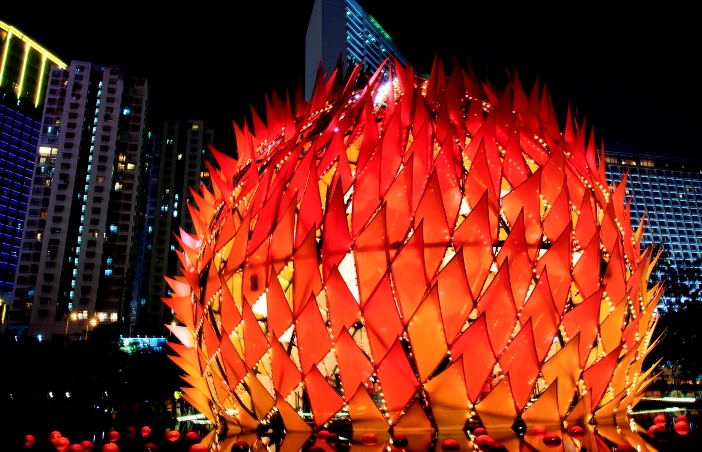Colorful Mid-Autumn Festival in Hong Kong

Mid-Autumn Festival (or Moon Festival) is one of the most colorful among the many traditional Chinese festivals celebrated in Hong Kong, China. For hundreds of years, along with Chinese New Year, the Mid-Autumn Festival has been one of the most important Chinese festivals, a time when families get together to celebrate the abundance of a good harvest and to gaze at the full moon. Children play with lanterns of different shapes and colors adding a delightful ambient to the festivities.
This year, Mid-Autumn Festival falls in September. People enjoy one day off on that day which is usually connected with the weekend. The Mid-Autumn holiday in Hong Kong starts from September 6th until 8th.
The Mid-Autumn celebrations always include colorful Chinese lanterns. Shops all over town sell colored Chinese paper lanterns usually in the shape of animals, but more recently, in the shape of space ships and cartoon characters etc. There are also large thematic lantern displays in different areas of Hong Kong. Mid-Autumn Festival is given a modern treatment now in Hong Kong, where glowing lanterns merge with the city’s neon signs, fiery dragon dance through the busy streets and a full moon shines down on a festive metropolis.
Moon cakes are a traditional and indispensable part of the Hong Kong Mid-Autumn festivities (so the event is also called Moon Cake Festival). Mooncakes are available from bakeries, supermarkets and some restaurants from about the end of August. Friends and relatives give one another moon cakes as gifts to convey blessings and good fortune.
Moon cakes date back to the Yuan dynasty when Han Chinese rebels passed secret messages to one another hidden in the cakes to prevent their plans for insurrection being discovered by their Mongolian rulers. Since the moon cake is round in shape, it symbolizes the reunion of a family, so it is easy to understand how the eating of moon cakes under the round moon can inspire the missing of distant relatives.
Lưu
Lưu